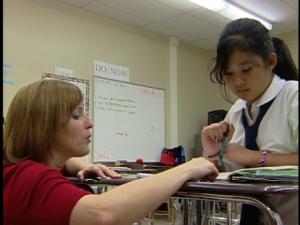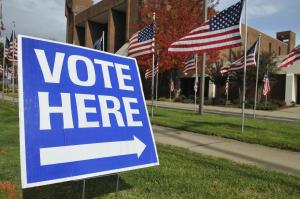These articles and videos provide a profile of students with interrupted formal education (SIFEs) and their needs, recommendations of best practices, and examples of the kinds of quality support that will accelerate their academic achievement.
What are some of the ways in which newcomer students need support? How can schools help bridge the language gap to make them feel welcome? Here are some ideas to get started!
The first step in building a partnership with the families of English language learners (ELLs) is to make sure that they feel welcome at their child's school. This resource section includes ideas that all members of the school community can try!
Immigrant students can face a number of difficult situations as they acclimate to a new culture. They may also be learning a new language and have significant family responsibilites or experience with trauma. These resources provide guidance on how to help address some of these needs as well as draw on student strengths and resilience.
One way to find extra support for English language learners is to look in the community - volunteer, community organizations, and local businesses may have something to contribute. These resources offer ideas for building relationships and matching community members with student and families needs.
There are a number of laws and guidelines related to the education of English language learners (ELLs) at the federal, state, and local level. This section includes an overview of those laws, as well as topics such as important court cases impacting ELLs and current issues in the news today.
Educators of English language learners (ELLs) are important advocates for their students — and may be their students' only advocates. These resources help educators understand that role and offer ideas about where to start as advocates.
The following articles provide perspectives meant to inform policy discussions around the education English language learners (ELLs). They are written for a general audience and we encourage you to chime in using our comment boxes after each article!
The following articles provide perspectives meant to inform policy discussions around the assessment and accountability of English language learners (ELLs).










